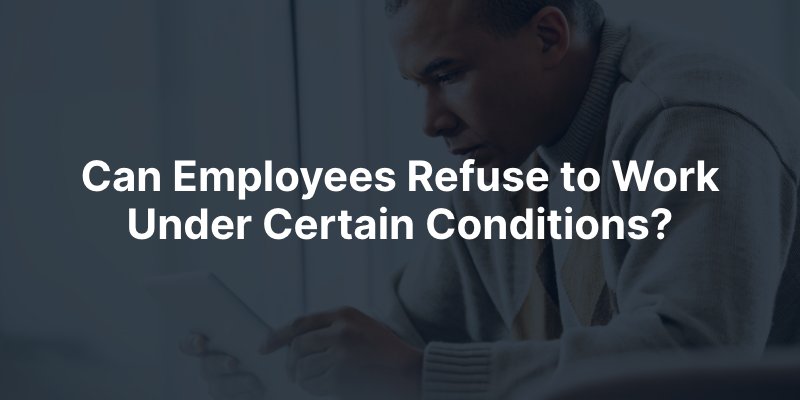While employers have the authority to set workplace policies, there are situations where employees can refuse to work under specific conditions without facing adverse consequences.

When work conditions are life-threatening or present a risk of severe injury, you may have the right to refuse to work due to the danger of being exposed to the hazard. To legally refuse dangerous work, the following conditions must apply:
When these conditions apply, you can notify your employer that you refuse to work until the hazard is resolved. You can also ask to be assigned other work, but no matter what, it is best to remain at the job until your employer orders you to leave unless you are in imminent danger.
OSHA stands for the Occupational Safety and Health Administration. It is a federal agency within the United States Department of Labor. OSHA’s primary mission is to ensure safe and healthy working conditions for employees by enforcing standards and regulations.
To file a complaint with OSHA, you can do so online and file it from your personal device if you are concerned about confidentiality. Other options include:
If you do tell your employer you are enforcing your right to refuse dangerous work, immediately call your local OSHA office or the toll-free number (800)-321-OSHA.
All California workers have a right to safe and healthy working conditions. If you experience retaliation, such as termination, demotion, or other adverse actions, after refusing dangerous work, consult a trusted Orange County Employment Attorney. Retaliation for raising legitimate safety concerns is unlawful, and an attorney can provide guidance on your rights and potential legal actions to hold your employer accountable.
In addition, you can file a discrimination complaint within 30 days, either online or by calling your local OSHA office. A member of their staff will contact you to discuss your complaint, ask questions, and will then investigate. Once they gather information from your employer and speak to witnesses, if necessary, they will take action if there is evidence of retaliation. For example, requiring that your job, earnings, position, or benefits be restored, and possibly a compensation award for any resulting damages (e.g., lost income, emotional distress, humiliation, etc.).